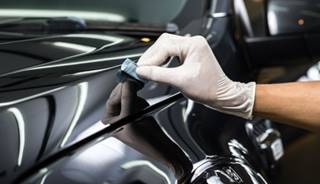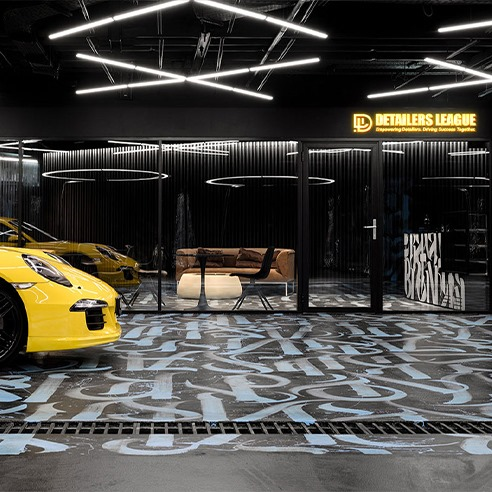
Car detailing isn’t just about cleaning your car; it’s about restoring it to its best condition, inside and out. If you’re thinking about getting into the world of car detailing or even turning it into a career, car detailing training is an excellent way to learn the techniques and skills needed to provide top-notch services. But what can you expect from car detailing training? Let’s break it down, so you know exactly what you’re getting into.
1. Hands-On Experience with Car Detailing Tools and Products
One of the first things you’ll notice in a car detailing training program is the hands-on experience. You won’t just learn theory — you’ll get to use the actual tools and products that professionals rely on to get the job done right. From the right types of microfiber towels to using a buffer for polishing, you’ll become familiar with the equipment that makes detailing successful.
You’ll also learn which cleaning products work best for different surfaces, like wax for paint, conditioners for leather seats, and fabric cleaners for upholstery. Knowing how to choose and use these products is a game-changer for anyone serious about detailing.
2. Understanding the Importance of a Proper Wash and Clay Bar Treatment
The foundation of car detailing begins with the wash. But it’s not just about getting rid of dirt; it’s about washing properly to avoid scratches or damage to the paint. During training, you’ll learn the best techniques for washing a car safely, including how to use the two-bucket method to prevent dirt from reapplying to your car’s surface.
Once your car is clean, you’ll be introduced to the clay bar process. This step removes stubborn contaminants that a regular wash can’t handle, like tar, tree sap, or industrial fallout. You’ll understand how to properly use the clay bar without damaging the paint, leaving the surface smooth and ready for polishing.
3. Polishing and Paint Correction Techniques
Polishing is another crucial skill you’ll learn in car detailing training. Over time, cars accumulate scratches, swirl marks, and other imperfections that affect their appearance. In your training, you’ll learn how to perform paint correction, a process that involves using specific polishers and compounds to remove these imperfections and restore the paint’s original shine.
You’ll practice different polishing techniques, including how to properly apply the product, how much pressure to use, and how to work in small sections for the best results. By the end of your training, you’ll be able to bring any car’s paint back to life.
4. Interior Detailing: Cleaning Every Corner
The interior of a car is where most drivers spend their time, so making sure it’s spotless is key to providing excellent detailing services. Your training will teach you how to clean all areas inside the car, from vacuuming the carpets to cleaning the dashboard, steering wheel, and upholstery.
You’ll also learn the importance of choosing the right products for various surfaces like leather, fabric, and vinyl. For instance, you’ll be shown how to clean and condition leather seats to keep them looking new and how to treat fabric seats to prevent staining or wear. These skills will help you offer a thorough and professional interior cleaning.
5. Understanding the Role of Protection: Waxing and Sealing
In your training, you’ll not only learn how to clean and restore a car but also how to protect it. After polishing, you’ll be taught the importance of applying wax or paint sealant to protect the surface from the elements. You’ll understand how waxing creates a protective layer, helping to repel water, dirt, and other contaminants while keeping the car’s paint job looking shiny and fresh for longer.
This section of your training may also cover different types of protection options, like ceramic coatings, which provide long-lasting protection against scratches and stains. These coatings are highly sought after in the industry, and knowing how to apply them can set you apart as a professional detailer.
6. The Business Side: Customer Service and Managing Expectations
Car detailing training isn’t just about learning techniques — it’s also about learning how to run a successful business. If you’re considering turning your detailing skills into a business, your training will likely cover customer service and how to manage client expectations.
You’ll learn how to properly assess a car’s condition, explain what services will be performed, and set clear timelines for completion. Building trust with customers is crucial in this line of work, and you’ll learn how to communicate professionally to ensure satisfaction.
7. Time Management and Efficiency
Detailing can be time-consuming, and it’s important to manage your time effectively to complete jobs within a reasonable timeframe. During training, you’ll learn how to prioritize tasks, work efficiently, and stay organized while maintaining high-quality results. Time management is especially important if you’re planning to detail multiple cars in a day or run your own detailing business.
8. Advanced Techniques for Specialized Detailing
Once you’ve mastered the basics, advanced training will introduce you to specialized techniques for things like engine bay detailing, headlight restoration, and odor removal. These services are in high demand, and learning how to offer them can give you a competitive edge in the detailing world.
You’ll also have the opportunity to work on different types of vehicles, from sports cars to SUVs, to get a sense of how to handle various car makes and models. This experience will help you become a versatile and skilled detailer capable of handling any car that comes your way.
9. Certification and Building Your Portfolio
Many car detailing training programs offer certification upon completion. This certification not only validates your skills but also shows potential customers that you’ve been trained by professionals and that you know what you’re doing. You’ll also have the chance to build a portfolio with before-and-after photos of your work, which can be a valuable marketing tool when you’re looking to attract new clients.
10. Continual Learning and Improvement
The world of car detailing is constantly evolving, with new products, tools, and techniques emerging all the time. As part of your training, you’ll be encouraged to keep learning and stay updated on the latest trends in the industry. Continuing education and practice will help you stay ahead of the competition and offer your clients the best service possible.
Conclusion
Car detailing training is more than just learning how to wash a car — it’s about mastering the art of vehicle care. Whether you’re looking to start a business or improve your personal detailing skills, training provides you with the knowledge, hands-on experience, and confidence to tackle any detailing job. From understanding the tools and products to providing excellent customer service, car detailing training sets you up for success in a rewarding and growing industry. So, if you’re serious about perfecting your skills, it’s time to get started and see just how transformative detailing can be!
Contact Detailers League now to explore our top-notch car care training programs and business consultancy services. Let's elevate your detailing career together
Contact Us















